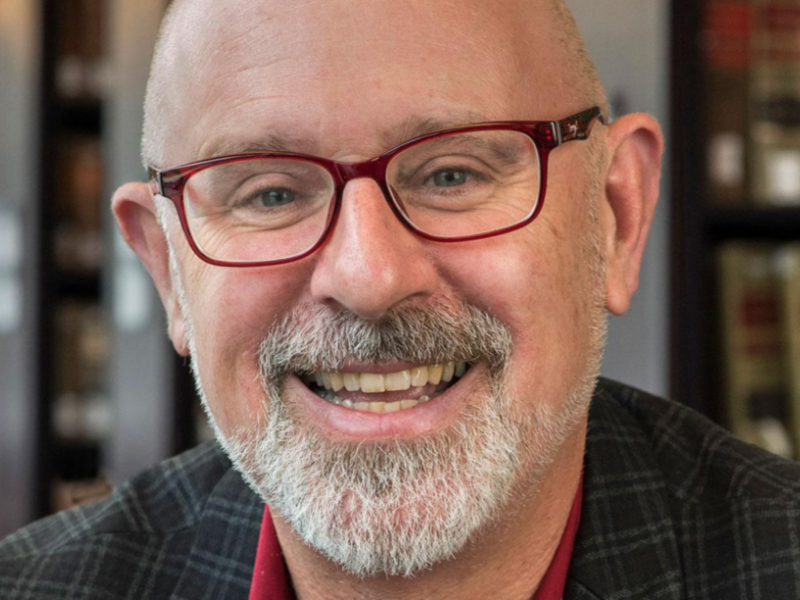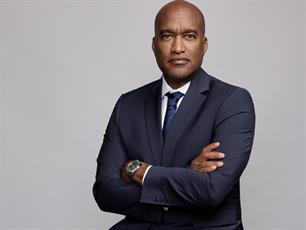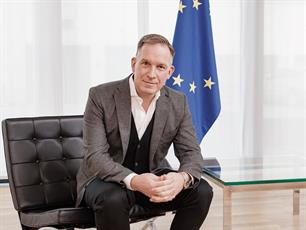Diana Marszalek 04 Dec 2023 // 11:00AM GMT

University of Chicago law professor Tom Ginsburg also serves as faculty director of the school's Forum for Free Inquiry and Expression, which launched the day before Hamas' Oct. 7 attack on Israel unleashed a firestorm of campus protests — and a rash of antisemitic and Islamophobic incidents at schools across the country. Ginsburg spoke with PRovoke Media about the vitriol threatening campus life, universities' role in managing discord and why it's okay to "just be quiet." An edited transcript:
You are the faculty director of the University of Chicago’s Forum for Free Inquiry and Expression. Please tell us about the forum and its purpose.
The Forum for Free Inquiry and Expression is a new initiative that the university developed under President Paul Alivisatos to take forward our 130-year-old tradition of promoting free and open discourse to meet the challenges of the current era. It’s to deepen understanding and practice of free speech.
Has the forum played any particular role in moderating the discord that has occurred on campuses around the Hamas-Israel war?
We happened to launch on Oct. 6 and woke up the next day to this new environment. So, it’s not like we have an established program that we can deploy, though I have given a couple of lectures on the conflict and speech in this environment. We are trying to educate people on the underlying issue.
But in a couple of ways we (UChicago)were well-prepared as all these things about universities’ statements, presidents’ statements emerged. We have a longstanding policy that the university is just not supposed to speak out. We are somewhat advantaged in that way and some schools are looking to us as a model.
Why is there such a policy in place, particularly as organizations are increasingly being expected to take stands on political and social issues?
In general, we of course can express empathy with our students, tell them about the resources available to them. But the vision of the Kalven Report is that you can do that, but you shouldn’t take positions on issues of the day.
The basic idea of the report is who is the “we” the leadership would be speaking for? Our “we” is plural. We don’t allow our leaders to impose orthodoxy. Our contention is you would be squelching the incentive to inquire among faculty and students. It doesn’t mean the university is neutral. It means that the position of the university consists of what is said by its body of citizens and members rather than a moral authority.
While the attacks on Israel and ensuing war were a shock, should we be surprised at the kind of discord and vitriol playing out on campuses around it?
This conflict has led to a crisis over free speech. In some sense, I feel like what’s happened in the last month, which is very restrictive of free expression, is the culmination of years of buildup, where students’ feelings are super important. We recognize that is a genuine concern. But the impulse to suppress free speech because it might hurt someone’s feelings is fully evident.
What’s interesting is that most of the repression has been on the left, which (in the past) has wanted to repress others in the interest of feelings and such. This was reflected in the idea that we were going to get someone canceled or fired for public speech or perhaps mischaracterizing something in scholarship. That’s been going on from both sides for about a decade. And certainly, some of the younger people who have much more pro-Palestinian views are experiencing the repression they were promoting. That is part of cancel culture.
Where do you draw the line between free speech and hate speech?
What’s antisemitism? What’s Islamophobia? These are not self-defining terms and people have different views on them — and what the line is open to public debate. Having people have actual conversations is ultimately the goal. We have to figure this out, to model how people can talk about different points of view and give people skills in listening and communicating with people in a non-violent way. That doesn’t happen on its own.
What is the role of universities in drawing that line?
Free expression is a misnomer. You actually have to build structures so that can happen. I am worried if universities don’t build cultures of free expression, not only won’t we have general knowledge, but we won’t be equipping adults to go out in the workplace and work with people who have differing points of view. Universities also have a special duty to allow students to make mistakes to test ideas out with the stakes being relatively low. I think we have to reintroduce that.
Why is this topic spurred such virulent divisions among students?
There are two issues. There is the underlying conflict in Israel and Palestine, and that’s where people feel like it’s a zero-sum game, in which we have to pick our team. As someone who has studied the conflict for 30 years, my view is there is plenty of blame to go around, but people are not willing to say that. The other problem is that everyone feels the need to weigh in on every issue. This is a conflict that dates back more than 120 years and is 6,000 miles away, that few people really understand. It is a dangerous position to say “silence is violence” here.
Most people in universities should have the epistemic humility to just be quiet. You don’t have to tweet. You don’t have to take legal terms like “genocide” and “terrorist” and pretend you have something original to say about them. People should be more in a posture of learning, but that’s not what the culture is today. Moving outside of this issue, I find the idea that everyone has an opinion about everything a bit problematic: it tends to lead to argument rather than actual learning. If we don’t get this right, no one is going to say anything or learn anything and then we’re doomed as a society.


































.jpg)


















